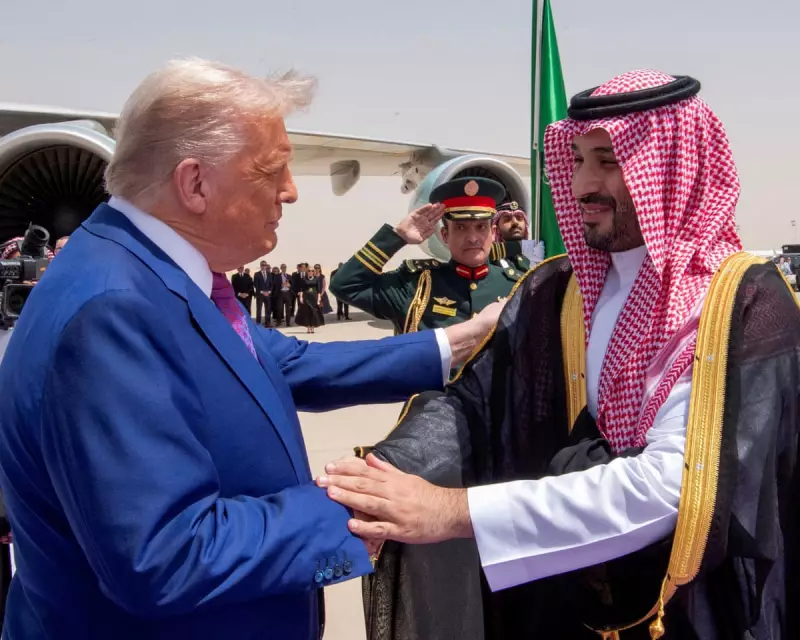
US President Donald Trump is set to host Saudi Arabia's de facto ruler, Crown Prince Mohammed bin Salman, at the White House on Tuesday in a high-profile visit expected to result in multi-billion dollar defence agreements, including the sale of advanced F-35 stealth fighter jets.
Red-Carpet Reception Amidst Khashoggi Fallout
This marks the crown prince's first official visit to the White House since the 2018 killing of journalist Jamal Khashoggi, a Washington Post columnist and prominent critic of the Saudi government. The CIA subsequently concluded that Prince Mohammed had approved the murder, sparking international condemnation.
Despite this controversy, President Trump has actively worked to rehabilitate the relationship with the Gulf monarchy. The 40-year-old prince's arrival comes as his father, King Salman, 89, has largely retreated from public view, cementing his son's position as the kingdom's effective leader.
The two leaders will hold extensive discussions culminating in a White House dinner organised by First Lady Melania Trump, signalling the importance both nations place on the relationship.
Billions in Defence and Technology Deals
On the eve of the visit, President Trump confirmed that Washington would be selling F-35 stealth fighters to Saudi Arabia, with each aircraft costing between $80 million and $110 million. The jets are primarily manufactured by US defence contractor Lockheed Martin.
A senior White House official told Reuters that 'the Saudis will be spending a lot of money tomorrow on the US', indicating the scale of the anticipated agreements.
Beyond the defence contracts, reports suggest Saudi Arabia will announce a multibillion-dollar investment in US artificial intelligence infrastructure, part of Riyadh's broader strategy to diversify its economy away from oil dependence.
Regional Implications and Human Rights Concerns
The F-35 sale represents a significant shift in US Middle East policy, marking the first delivery of these advanced fighter jets to a Middle Eastern state apart from Israel. For years, the United States maintained Israel's 'qualitative military edge' by exclusively supplying it with the most sophisticated weapons.
The changing politics of the region, with Gulf monarchies increasingly focused on countering Iran, which Riyadh considers its chief regional foe, has driven this policy evolution. President Trump referenced Israeli-US bombardment of Iran when discussing his friendship with Saudi Arabia.
However, the visit has drawn criticism from human rights advocates. Hanan Elatr Khashoggi, the widow of the murdered journalist, described learning of the trip as 'very painful'. She revealed she had written to President Trump requesting help in reaching a financial settlement with Prince Mohammed.
'I hope they look at the American values of human rights and democracy besides any economic ties and selling weapons,' she told CNN. 'There is something missing... looking for real justice.'
Saudi authorities continue to deny high-level involvement in Khashoggi's death, and his dismembered body has never been found.
Some pro-Israel US Republicans remain wary about upsetting Israel's military advantage, though the Trump administration has successfully normalised relations between Israel and several Arab states through the Abraham Accords. While Saudi Arabia hasn't formally joined these agreements, it maintains unofficial cooperation with Israel.





